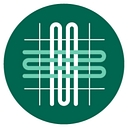
Neurosurgery Residency
Dartmouth Health / Dartmouth Hitchcock Medical Center and ClinicsNeurosurgery Residency
The Dartmouth Hitchcock Medical Center neurosurgical residency has been an approved training program since its inception in 1947 by Dr. Henry Heyl, later the editor of the Journal of Neurosurgery. Sited at the nation's fourth-oldest medical school, Geisel School of Medicine at Dartmouth, and Dartmouth Hitchcock Medical Center, the program enjoys state-of-the-art facilities within the enviable setting of a New England university community.
Mission
Our mission is to provide advanced neurosurgical care to our region of northern New England: we are a referral resource for subspecialty expertise across all areas of neurosurgery. We are committed to training the next generation of neurosurgeons who will enter practice as safe, competent, and skillful surgeons. We believe that research is an integral part of the education of residents and the advancement of the field of neurosurgery. Our institution is a Level 1 trauma center, a National Cancer Institute (NCI) designated Comprehensive Cancer Center, a Primary Stroke Center, and has a Children's Hospital. We provide integral support to these programs.
Program aims
We seek to train neurosurgeons with excellent operative skills who, at the conclusion of their training, are able to practice independently in the setting of their choice. We seek to ensure that residents have broad exposure to the field of neurological surgery and the opportunity to focus their career trajectory in line with their interests. We seek to provide the research foundation for an academic career for those residents who wish to pursue it. We think that the search for new knowledge is an integral part of surgical training and all residents are expected to be involved in at least 1 research project per year. We also seek to ensure that those residents who wish to pursue subspecialty fellowship training will be competitive for the program of their choice.
The program has proudly graduated neurosurgeons who have been successful across a wide range of endeavors. The 7-year curriculum is designed to expose residents to the full breadth of neurosurgery, and provide ample support for investigative work. Past graduates have gone on to successful practice in both academic and private settings, held leadership positions in organized neurosurgery, and have made significant contributions towards the field's advancement.
Overview and Program Details
The 7-year curriculum of the Neurosurgery Residency at Dartmouth Hitchcock Medical Center is designed to provide training in the full breadth of neurosurgery and provide ample opportunities for career development.
Overview
The program begins with an integrated PGY-1 year, including 1-month rotations in plastic surgery and otolaryngology, 3 months of clinical neurology (1 month each of general, epileptology, and stroke), and 2 months of critical care surgery, 2 months of neurocritical care, with the remaining time spent on the neurosurgery service.
PGY-2 through PGY-5 consists of core neurosurgical rotations in both adult and pediatric neurosurgery, interspersed with related neuroscience education. As a longstanding feature of our program, residents are paired with attending surgeons for 3-month rotations in an apprenticeship-style teaching model. Each resident works closely with their assigned attending across the clinical service, in the operating room, and during clinic. The individual attention and patient continuity afforded by this training model maximizes the professional development of each resident. Instruction follows graduated progression through increasing levels of intellectual growth, technical proficiency, and clinical responsibility. Over this period, residents gradually assume greater responsibility for independent management and technical skill.
PGY-6 consists of a 12-month independent year designed by the resident to serve their career objectives. Recent graduates have utilized this valuable time for laboratory or clinical research, further training in a subspecialty focus of interest, enfolded fellowships, international rotations, or coursework at the Dartmouth Institute for Health Policy. Several past residents have received master's degrees via this latter opportunity.
The program culminates in 12 months as chief resident during the PGY-7 year. By this final year of training, the resident has acquired a broad education, is capable of teaching medical students and junior residents, and is able to operate with confidence across the full range of neurosurgical disorders. The chief is responsible for day-to-day clinical management of the service, and for direct supervision of the junior residents.
Residents in this program are respectfully treated as colleagues and are held to the highest professional standards. The collegial atmosphere, along with the program's apprenticeship training structure, is enabled by a small, cohesive group of residents and faculty.